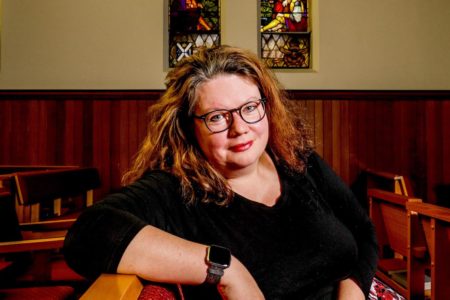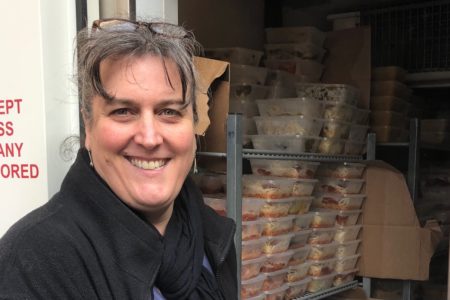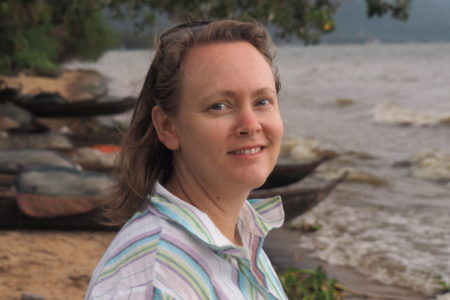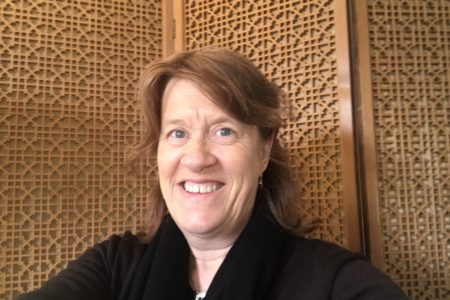As part of our on-going series, we speak with Robyn Nandan, relief teacher at Rosny College, Hobart.
How has your work been affected by the COVID-19 crisis?
Since I retired from full time work when I was just 70, I have been a relief teacher of English and English Literature.
How have you responded?
Since this crisis, I have refused work because I am 72 and in the risk category. Part of it has been influenced by the fact that I am widowed and have six adult children who are very concerned for my health and safety.
My eldest son, his wife and daughter live in London, where they have been in lockdown. My daughter-in-law’s mother lives just north of Milan, so I heard first-hand of the tragedy that has unfolded there. My eldest daughter lives in Auckland, where the whole country went into Stage 4 Lockdown with 48 hours to prepare. There is no school, no childcare and people are at home, apart from those who are absolutely essential workers. My second son, wife and two little children are in Brisbane. These three children are all working from home.
What do you most want to preserve or focus on during this period?
I’m finding this most stressful. What I want to preserve from this extended period of time is the sanity and calm of all my children and their families. I have a focus on my grandchild during the day now.
What is most challenging?
My three eldest children cannot see me or visit if I become ill. This separation is very challenging and the knowledge that I cannot travel to see them or them to me. I have two adult children and a grandson living with me. Only today, my daughter pulled him out of daycare and I care for him. I worry that both these children are working out of the home.
My youngest daughter is a primary school teacher and will not visit me as she feels her workplace and the children who are disadvantaged, some of whom are still at school, are too great a risk. I want to remain well and survive all this.
Has there been any positives to come out of this?
There is a reduction of pollution from air travel. People have to be resourceful in the way that they work together and stay home together. It has given humanity a jolt to see how interdependent we all are on each other in the whole world.
People have been encouraged to be kind and think about the greater good for the greater number. I liked the fact that the Prime Minister, Scott Morrison, when asked if it was better to prioritise younger people rather than older people (as had occurred in Italy) said that “every person is important, whether they are a newborn baby or a person who is an older person” or words to that effect. He was saying that everyone is important, regardless of age; that all are valued human beings.
In our church, we have a phone roster with the Leadership Team to ring the members of our community once a week, so that each week a different person is ringing. We are emailed out services, giving online links to services of the UCA and posting out messages, reflections and meditations as another way of being Church.
Do you have any ideas or advice from your experience to share with others?
My suggestion is that we pray and be still and calm when we have a sense of panic or loss of control over our lives. I find prayer and meditation helpful and I read my bible every morning and pray every night, before I go to sleep. I actually kneel at my bed and feel that God is listening to me. Music is calming, too, and I like to hear the old hymns I play on my computer.
In this time of challenge and for many distress, do you have a personal message or faith reflection that you would like to share?
I have to constantly remind myself to be calm. I cannot disintegrate into a state of panic. I think of Jesus and the challenges He faced in His life on earth. We, as Christians, are journeying with HIM in this Lenten Season, Palm Sunday and the agony of Good Friday and the joy of the Resurrection.
Jesus has seen that agony of humanity and journeys with us. We have to continually remind ourselves of the presence of the Holy Spirit to connect us to God and to each other.
Another positive is I am seeing the world through the eyes of a 20-month-old who is looking at nature in my garden; picking apples off the trees and saying “apple”, observing the birds, pulling little weeds out, turning on the tap with all his might and watching the water with surprise and delight. These small things in the eyes of an adult are the discoveries of a child.
I also get comfort from the following verse:
“He is my loving God and my fortress, my stronghold, and my deliverer, my shield, in whom I take refuge.” Psalm 144, 2.





